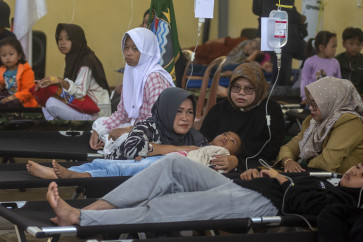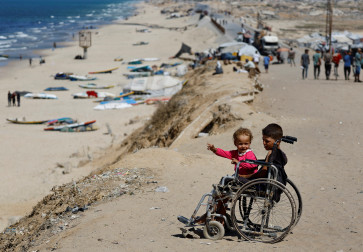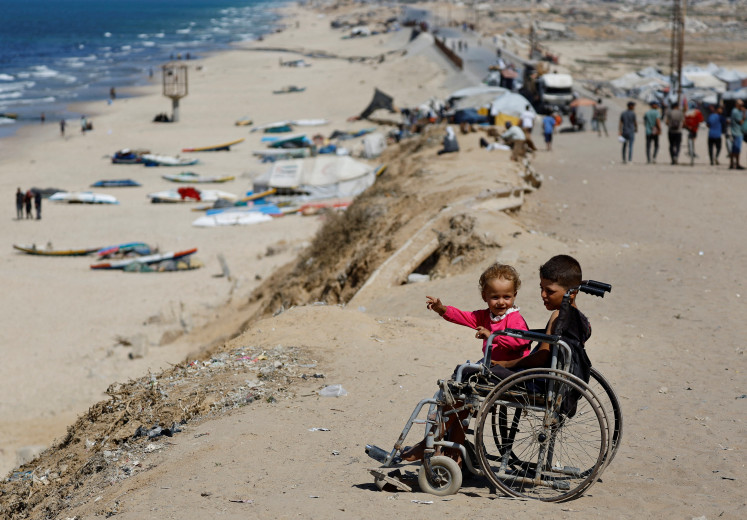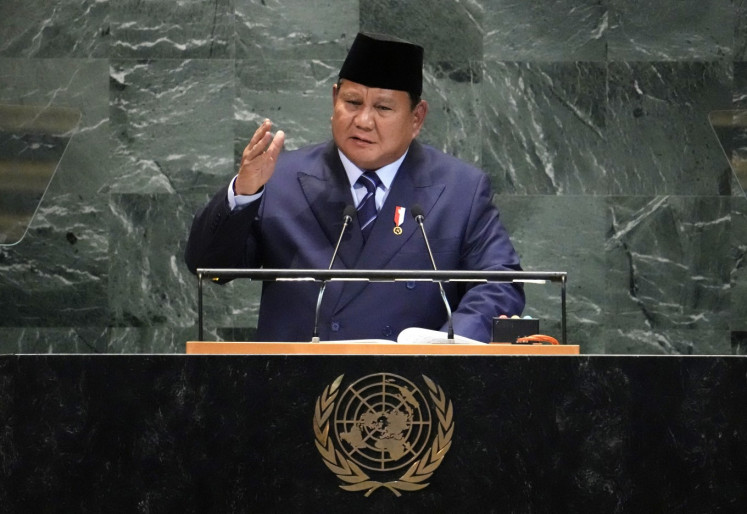Popular Reads
Top Results
Can't find what you're looking for?
View all search resultsPopular Reads
Top Results
Can't find what you're looking for?
View all search resultsResearch cooperation matters to ASEAN
Two years ago 10 science ministries and research funding agencies from Southeast Asia and Europe gathered around a table in Siem Reap and agreed to launch a new program for collaborative research
Change text size
Gift Premium Articles
to Anyone
T
wo years ago 10 science ministries and research funding agencies from Southeast Asia and Europe gathered around a table in Siem Reap and agreed to launch a new program for collaborative research.
The results are remarkable: The new program, despite being little known and without much advertising, received 50 applications from 218 organizations. By the beginning of 2018, 10 projects were funded with an average of Rp 5.5 billion each in the areas of emerging infectious diseases, antimicrobial resistance, and climate change impacts on food production systems and biodiversity.
This showed that there is significant demand for research cooperation both within the Southeast Asia region as well as with Europe. The experiment is being repeated in 2018. This time 18 countries have indicated their intent to participate. This includes all ASEAN member states except for Singapore and Vietnam.
Moreover, the Indonesian Science Fund will host the Secretariat of the program, with support by the European Commission.
Why implement a research program at multinational rather than national level? There are several reasons.
First, because competition breeds excellence and the larger the competition pool is the better.
Second, because access to a broad range of talent and expertise is today vital to maintain competitiveness — in research or in industry.
Third, because much of research is geared towards combating global and societal challenges like health epidemics or climate change, which require joint action to avoid wasting resources.
There is also an advantage of a different sort: research collaboration builds bridges and forges strong links between peoples and countries.
This is the kind of academic and industrial collaboration and the people-to-people links that ASEAN wants to encourage, as reflected in the ASEAN Plan of Action on Science, Technology and Innovation (APASTI) adopted in 2015 for the period 2016-2025.
This is also why European research Framework Programs (FPs) were started in the 1980’s. Modestly at the beginning – the first such FP had a budget of “just” €1 billion over four years — and then gradually expanding to arrive to today’s 8th FP named “Horizon 2020” that covers a broad spectrum of research and innovation up to 2020 for an overall budget of €77 billion.
On May 2 the European Commission made its budget proposals to the European Council and Parliament for the period 2021 to 2027, foreseeing a record-breaking €100 billion for research.
EU research and innovation policy promotes a common European Research Area based on the principles of excellence through competition, impact and openness. Openness in all aspects: open science, including open access to publications and data, open innovation, openness to the world.
The latter means that any organization from any country in the world may participate in European collaborative projects, in many cases with EU funding.
Three quarters of the EU research money are invested in collaborative projects. Based on a recent commentary in the journal Nature (vol. 550, Oct. 5, 2017), this could be the reason that the EU has enhanced its science impact and now outperforms the United States, which has lost ground to a rising China.
In ASEAN there is much scope for research collaboration across its member states and beyond, as shown by the first year of operation of the Southeast Asia-Europe Joint Funding Scheme. There are many common challenges to be tackled and a lot of talent to be tapped.
Furthermore, ASEAN can learn from the EU when it comes to research policies at regional level, for example for sharing research infrastructures or for scientist mobility.
Europe leads the world in science and does this through an emphasis on openness and collaboration. This is why it is a natural partner of ASEAN when it comes to research. ASEANs can learn from its experience and both Europe and Southeast Asia will come out stronger.
We should work together to put ASEAN-EU cooperation in science and technology in the next gear.
_______________________
The writer is visiting EU fellow at the Lee Kuan Yew School of Public Policy, National University of Singapore.










